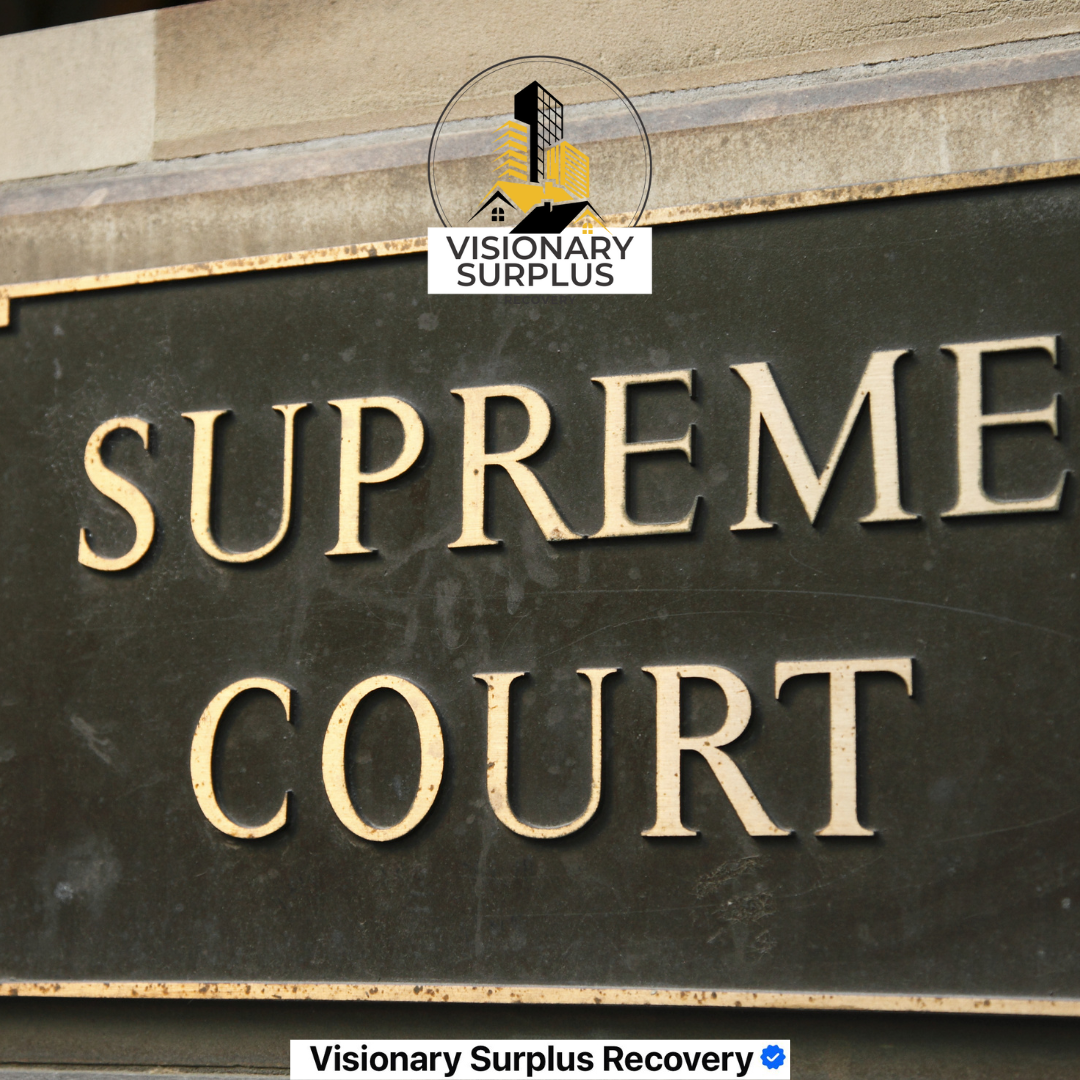The Role of the Clerk of Court in Florida Surplus Fund Disbursements
The Role of the Clerk of Court in Florida Surplus Fund Disbursements
If you’re trying to recover surplus funds after a foreclosure or tax deed sale in Florida, your interaction will almost always involve the Clerk of the Circuit Court. But many homeowners and heirs don’t fully understand what the Clerk does — and what they don’t do — in the surplus recovery process.
This guide explains the Clerk’s role in both foreclosure and tax deed surplus fund disbursements, including when they can release funds without a judge, how they manage timelines, and what you need to do to keep your claim moving forward.
What Is the Clerk’s Role in Surplus Funds?
The Clerk of Court serves as the record-keeper and fund administrator for all foreclosure and tax deed sales in their county. After a sale occurs and surplus funds are identified, the Clerk:
Holds the funds securely in a court registry or designated account
Sends out notices to potentially interested parties
Reviews claim submissions
Disburses funds if legally permitted
The Clerk is not a judge and cannot resolve legal disputes — but they play a vital administrative role.
1. Surplus Funds After Foreclosure Sales (Fla. Stat. 45.032)
In foreclosure surplus cases, the Clerk’s role includes:
Holding surplus funds from the foreclosure auction
Issuing a Notice of Surplus Funds to interested parties
Accepting claims from former owners, lienholders, and their representatives
However, in most foreclosure cases, a judge is required to approve the disbursement — especially when:
Multiple parties have filed claims
The Clerk cannot determine entitlement based on documents alone
There is a dispute, objection, or hearing scheduled
In uncontested claims, some Clerks may process disbursements administratively if the judge grants blanket approval or no hearing is required. This varies by county and the specifics of the case.
2. Surplus Funds After Tax Deed Sales (Fla. Stat. 197.582)
In tax deed cases, the Clerk’s role is slightly more independent:
They identify surplus funds after a tax deed sale exceeds the owed taxes and costs
They issue a Notice of Surplus and open a 120-day claim period
After 120 days, they may release the funds directly to the claimant without court involvement, as long as:
The claim is valid
No competing claims have been filed
All documentation is complete
If multiple claims exist or something is unclear, the Clerk may:
Require court intervention
Hold a hearing
File an interpleader action to let the court decide
What the Clerk Can’t Do
Many people assume the Clerk will help them file or guide them through the legal side. Here’s what they don’t do:
They do not offer legal advice
They cannot tell you if you are the rightful heir or owner
They won’t resolve disputes between multiple claimants
They won’t file probate on your behalf if the owner is deceased
That’s why it’s often necessary to work with a surplus recovery professional or attorney — especially when legal interpretation, documentation, or disputes are involved.
How the Clerk Manages Surplus Fund Timelines
Each Florida county Clerk’s office operates under its own internal timelines, but generally:
Foreclosure surplus claims may take 4–8 weeks or more if court approval is needed
Tax deed surplus claims may be processed faster if uncontested, especially after the 120-day waiting period
You can typically check case status and claim activity online through your Clerk’s public records portal.
Why It’s Important to File Correctly with the Clerk
If you submit:
An incomplete form
A claim under the wrong name
Missing documentation (e.g., ID, notarization, probate orders)
…the Clerk will reject or delay your claim — and you could lose your chance to recover funds.
How Visionary Surplus Recovery Works with Clerks to Get Your Funds Released
At Visionary Surplus Recovery, we:
Work directly with Clerk’s offices across Florida
Ensure your claim is complete, timely, and properly filed
Coordinate with attorneys when court approval is needed
Monitor your case status and follow up until funds are disbursed
You don’t need to chase down case numbers, statutes, or Clerk procedures — we do it for you. Let Us Help You Navigate the Surplus Claim Process
If you're unsure how to deal with the Clerk or don’t want to risk errors, we’ll handle the entire process for you — and we only get paid when you do.
👉 Start a Free Case Review
Disclaimer: This post is for informational purposes only and does not constitute legal advice. Please consult an attorney for case-specific legal guidance.


